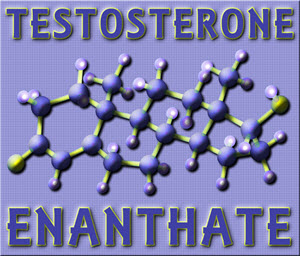Introduction to Genotropin Therapy
Genotropin, a recombinant human growth hormone, is pivotal in treating growth hormone deficiency in adolescents. For American adolescent males, adherence to Genotropin therapy is crucial for achieving optimal growth and development outcomes. This article delves into effective strategies to enhance adherence to Genotropin therapy, ensuring that young males can fully benefit from this treatment.
Understanding the Importance of Adherence
Adherence to Genotropin therapy is essential for its efficacy. Non-adherence can lead to suboptimal growth, delayed puberty, and other developmental issues. For American adolescent males, who often face unique social and psychological pressures, maintaining a consistent treatment regimen can be challenging. Therefore, understanding and addressing the factors that influence adherence is critical.
Strategies to Enhance Adherence
Education and Awareness
Educating adolescent males and their families about the importance of Genotropin therapy is the first step in enhancing adherence. Comprehensive education should cover the benefits of the treatment, the consequences of non-adherence, and the correct administration techniques. Utilizing visual aids, interactive sessions, and digital resources can make the educational process more engaging and effective.
Simplifying the Treatment Regimen
Simplifying the administration of Genotropin can significantly improve adherence. The use of pre-filled pens and clear instructions can make the process less daunting for adolescents. Additionally, integrating the treatment into the daily routine, such as administering the dose at a consistent time each day, can help establish a habit.
Psychological Support and Counseling
Adolescent males often face psychological challenges that can impact their adherence to treatment. Providing access to counseling and psychological support can address issues such as anxiety, depression, and body image concerns. Support groups and peer mentoring programs can also offer a sense of community and encouragement, which are vital for maintaining adherence.
Involving Family and Caregivers
The role of family and caregivers in supporting adherence cannot be overstated. Involving them in the treatment plan, educating them about the therapy, and encouraging them to provide positive reinforcement can create a supportive environment. Regular family meetings with healthcare providers can help monitor progress and address any concerns promptly.
Utilizing Technology
Technology can play a significant role in enhancing adherence. Mobile applications that remind adolescents to take their medication, track their progress, and provide educational content can be highly effective. Telemedicine and remote monitoring can also facilitate regular check-ins with healthcare providers, ensuring that any issues are addressed promptly.
Monitoring and Feedback
Regular monitoring of adherence and providing feedback are essential components of a successful treatment plan. Healthcare providers should use tools such as diaries, adherence logs, and growth charts to track progress. Positive feedback and recognition of milestones can motivate adolescents to continue their treatment diligently.
Addressing Barriers to Adherence
Identifying and addressing barriers to adherence is crucial. Common barriers include forgetfulness, fear of injections, and social stigma. Tailored interventions, such as cognitive-behavioral therapy for fear of injections or social skills training to address stigma, can help overcome these barriers. Additionally, ensuring access to affordable medication and healthcare services is vital for maintaining adherence.
Conclusion
Enhancing adherence to Genotropin therapy in American adolescent males requires a multifaceted approach that addresses educational, psychological, and practical aspects of treatment. By implementing these strategies, healthcare providers can support young males in achieving optimal growth and development, ultimately improving their quality of life. Through education, simplification of the treatment regimen, psychological support, family involvement, technology, monitoring, and addressing barriers, adherence to Genotropin therapy can be significantly improved.
Contact Us Today For A Free Consultation

- Unlocking the Potential of Genotropin for Metabolic Health in American Men [Last Updated On: February 20th, 2025] [Originally Added On: February 20th, 2025]
- Unveiling the Potential of Genotropin: A Comprehensive Review of Clinical Trials and Outcomes [Last Updated On: March 12th, 2025] [Originally Added On: March 12th, 2025]
- Genotropin's Impact on Lipid Profiles in Men with Growth Hormone Deficiency [Last Updated On: March 14th, 2025] [Originally Added On: March 14th, 2025]
- Exploring the Efficacy of Genotropin in Managing Idiopathic Short Stature in American Males [Last Updated On: March 15th, 2025] [Originally Added On: March 15th, 2025]
- Unveiling the Impact of Genotropin on Growth Hormone Deficiency and Sleep Disorders in American Males [Last Updated On: March 16th, 2025] [Originally Added On: March 16th, 2025]
- Exploring the Effects of Genotropin on Lung Function in American Males with Growth Hormone Deficiency [Last Updated On: March 16th, 2025] [Originally Added On: March 16th, 2025]
- Exploring the Role of Genotropin in Treating Growth Hormone Deficiency and Osteoporosis in American Males [Last Updated On: March 16th, 2025] [Originally Added On: March 16th, 2025]
- Exploring the Impact of Genotropin on Exercise Capacity in Growth Hormone Deficient Men [Last Updated On: March 16th, 2025] [Originally Added On: March 16th, 2025]
- Exploring the Psychological Landscape of Genotropin Therapy: Overcoming Barriers for American Males [Last Updated On: March 16th, 2025] [Originally Added On: March 16th, 2025]
- Exploring the Impact of Genotropin on Bladder Function in Men with Growth Hormone Deficiency [Last Updated On: March 16th, 2025] [Originally Added On: March 16th, 2025]
- Genotropin in American Males: Pharmacokinetics, Pharmacodynamics, and Clinical Implications [Last Updated On: March 18th, 2025] [Originally Added On: March 18th, 2025]
- Genotropin's Cognitive Benefits in Growth Hormone Deficient American Males: A Review [Last Updated On: March 18th, 2025] [Originally Added On: March 18th, 2025]
- Genotropin's Impact on Growth Disorders in American Males: Efficacy and Applications [Last Updated On: March 18th, 2025] [Originally Added On: March 18th, 2025]
- Genotropin's Role in Enhancing Quality of Life for American Males with Short Bowel Syndrome [Last Updated On: March 19th, 2025] [Originally Added On: March 19th, 2025]
- Genotropin Therapy Transition for American Males: From Pediatric to Adult Care [Last Updated On: March 19th, 2025] [Originally Added On: March 19th, 2025]
- Debunking Myths: Understanding Genotropin Therapy for American Males [Last Updated On: March 20th, 2025] [Originally Added On: March 20th, 2025]
- Genotropin Therapy for Growth Hormone Deficiency in Elderly Men: Benefits and Management [Last Updated On: March 20th, 2025] [Originally Added On: March 20th, 2025]
- Genotropin's Impact on Cardiovascular Health in American Males with Growth Hormone Deficiency [Last Updated On: March 20th, 2025] [Originally Added On: March 20th, 2025]
- Genotropin Therapy: Enhancing Growth and Quality of Life in American Males [Last Updated On: March 21st, 2025] [Originally Added On: March 21st, 2025]
- Genotropin: Revolutionizing Hypopituitarism Treatment for American Males [Last Updated On: March 21st, 2025] [Originally Added On: March 21st, 2025]
- Genotropin: Enhancing Growth in SGA Children - Mechanism, Efficacy, and Safety [Last Updated On: March 21st, 2025] [Originally Added On: March 21st, 2025]
- Strategies to Enhance Genotropin Therapy Compliance in American Males [Last Updated On: March 21st, 2025] [Originally Added On: March 21st, 2025]
- Genotropin Therapy for American Males: Benefits, Side Effects, and Management Strategies [Last Updated On: March 21st, 2025] [Originally Added On: March 21st, 2025]
- Genotropin's Impact on Body Composition in American Males with Growth Hormone Deficiency [Last Updated On: March 21st, 2025] [Originally Added On: March 21st, 2025]
- Genotropin Therapy Enhances Quality of Life in American Males with GHD [Last Updated On: March 22nd, 2025] [Originally Added On: March 22nd, 2025]
- Genotropin's Impact on Turner Syndrome: Enhancing Life for American Males [Last Updated On: March 23rd, 2025] [Originally Added On: March 23rd, 2025]
- Genotropin: A Key Treatment for Growth Hormone Deficiency Due to Craniopharyngioma [Last Updated On: March 24th, 2025] [Originally Added On: March 24th, 2025]
- Genotropin's Impact on Reproductive Health in American Males with Growth Hormone Deficiency [Last Updated On: March 24th, 2025] [Originally Added On: March 24th, 2025]
- Genotropin's Efficacy in Managing GHD and Diabetes in American Males [Last Updated On: March 24th, 2025] [Originally Added On: March 24th, 2025]
- Genotropin: Cost-Effective GHD Treatment for American Males [Last Updated On: March 24th, 2025] [Originally Added On: March 24th, 2025]
- Genotropin: Enhancing Life for American Males Post-Radiation GHD Treatment [Last Updated On: March 24th, 2025] [Originally Added On: March 24th, 2025]
- Genotropin's Role in Treating Growth Hormone Deficiency in Childhood Cancer Survivors [Last Updated On: March 24th, 2025] [Originally Added On: March 24th, 2025]
- Genotropin Enhances Immune Function in American Men with Growth Hormone Deficiency [Last Updated On: March 24th, 2025] [Originally Added On: March 24th, 2025]
- Genotropin: Enhancing Quality of Life in HIV-Positive Males with Growth Hormone Deficiency [Last Updated On: March 24th, 2025] [Originally Added On: March 24th, 2025]
- Genotropin's Impact on Hearing in American Males with Growth Hormone Deficiency [Last Updated On: March 25th, 2025] [Originally Added On: March 25th, 2025]
- Genotropin: Treating Growth Hormone Deficiency in American Males with Pituitary Tumors [Last Updated On: March 25th, 2025] [Originally Added On: March 25th, 2025]
- Genotropin's Impact on Dental Health in American Males with Growth Hormone Deficiency [Last Updated On: March 25th, 2025] [Originally Added On: March 25th, 2025]
- Genotropin Enhances Exercise Capacity in American Men with Growth Hormone Deficiency [Last Updated On: March 25th, 2025] [Originally Added On: March 25th, 2025]
- Genotropin's Impact on Growth Hormone Deficiency in American Males: Benefits and Considerations [Last Updated On: March 25th, 2025] [Originally Added On: March 25th, 2025]
- Genotropin Enhances Skin Health in American Males with Growth Hormone Deficiency [Last Updated On: March 25th, 2025] [Originally Added On: March 25th, 2025]
- Genotropin Therapy: Enhancing Growth in American Boys with Hormone Deficiency [Last Updated On: March 25th, 2025] [Originally Added On: March 25th, 2025]
- Genotropin Therapy for American Males: Nutritional Strategies for Optimal Growth [Last Updated On: March 26th, 2025] [Originally Added On: March 26th, 2025]
- Genotropin: Treating Growth Hormone Deficiency in American Males Post-TBI [Last Updated On: March 26th, 2025] [Originally Added On: March 26th, 2025]
- Personalizing Genotropin Therapy for American Males with Growth Hormone Deficiency [Last Updated On: March 26th, 2025] [Originally Added On: March 26th, 2025]
- Managing Growth Hormone Deficiency Transition with Genotropin in American Males [Last Updated On: March 26th, 2025] [Originally Added On: March 26th, 2025]
- Genotropin's Impact on Hair Growth in American Men with Growth Hormone Deficiency [Last Updated On: March 27th, 2025] [Originally Added On: March 27th, 2025]
- Genotropin Therapy for Growth Hormone Deficiency in American Males with Sickle Cell Disease [Last Updated On: March 27th, 2025] [Originally Added On: March 27th, 2025]
- Genotropin Therapy for American Males with Growth Hormone Deficiency and Epilepsy [Last Updated On: March 27th, 2025] [Originally Added On: March 27th, 2025]
- Genotropin: Enhancing Growth and Life Quality in American Males with GHD and ADHD [Last Updated On: March 27th, 2025] [Originally Added On: March 27th, 2025]
- Genotropin Enhances Sleep Quality in American Men with Growth Hormone Deficiency [Last Updated On: March 27th, 2025] [Originally Added On: March 27th, 2025]
- Genotropin Therapy in American Males: Long-Term Benefits and Essential Follow-Up Care [Last Updated On: March 27th, 2025] [Originally Added On: March 27th, 2025]
- Genotropin's Impact on Emotional Well-Being in Growth Hormone Deficient American Boys [Last Updated On: March 27th, 2025] [Originally Added On: March 27th, 2025]
- Genotropin Improves Vision in American Men with Growth Hormone Deficiency: Clinical Insights [Last Updated On: March 27th, 2025] [Originally Added On: March 27th, 2025]
- Genotropin's Impact on Growth Hormone Deficiency in American Males with Cystic Fibrosis [Last Updated On: March 28th, 2025] [Originally Added On: March 28th, 2025]
- Genotropin's Efficacy in Treating GHD in American Males with Rheumatoid Arthritis [Last Updated On: March 28th, 2025] [Originally Added On: March 28th, 2025]
- Genotropin's Impact on Growth Hormone Deficiency in American Males with Down Syndrome [Last Updated On: March 28th, 2025] [Originally Added On: March 28th, 2025]
- Genotropin: Managing Growth Hormone Deficiency and Asthma in American Males [Last Updated On: March 28th, 2025] [Originally Added On: March 28th, 2025]
- Genotropin's Impact on Kidney Function in American Males with Growth Hormone Deficiency [Last Updated On: March 28th, 2025] [Originally Added On: March 28th, 2025]
- Genotropin's Role in Treating GHD in American Males with ASD: Efficacy and Considerations [Last Updated On: March 28th, 2025] [Originally Added On: March 28th, 2025]
- Overcoming Psychological Barriers to Genotropin Therapy in American Males [Last Updated On: March 30th, 2025] [Originally Added On: March 30th, 2025]
- Genotropin Therapy for Growth Hormone Deficiency in American Males with Thyroid Disorders [Last Updated On: April 1st, 2025] [Originally Added On: April 1st, 2025]
- Genotropin's Role in Managing GHD and CFS in American Males: Efficacy and Implications [Last Updated On: April 1st, 2025] [Originally Added On: April 1st, 2025]
- Genotropin: A Promising Treatment for Growth Hormone Deficiency in Obese American Males [Last Updated On: April 1st, 2025] [Originally Added On: April 1st, 2025]
- Genotropin Therapy: Managing Growth Hormone Deficiency in American Males [Last Updated On: April 4th, 2025] [Originally Added On: April 4th, 2025]
- Genotropin's Efficacy in Treating GHD in Fibromyalgia Patients: A Comprehensive Review [Last Updated On: April 5th, 2025] [Originally Added On: April 5th, 2025]
- Genotropin Enhances Lung Function in Growth Hormone Deficient American Males: A Study [Last Updated On: April 6th, 2025] [Originally Added On: April 6th, 2025]
- Enhancing Genotropin Therapy Outcomes Through Effective Communication Strategies for American Males [Last Updated On: April 9th, 2025] [Originally Added On: April 9th, 2025]
- Genotropin's Impact on Liver Function in American Males with Growth Hormone Deficiency [Last Updated On: April 9th, 2025] [Originally Added On: April 9th, 2025]
- Genotropin's Role in Managing Growth Hormone Deficiency in American Males with MS [Last Updated On: April 9th, 2025] [Originally Added On: April 9th, 2025]
- Genotropin Therapy for GHD in American Males: Ethical Considerations and Responsibilities [Last Updated On: April 9th, 2025] [Originally Added On: April 9th, 2025]
- Genotropin: A Dual Therapy for GHD and Osteoporosis in American Males [Last Updated On: April 10th, 2025] [Originally Added On: April 10th, 2025]
- Genotropin's Impact on Joint Health in American Men with Growth Hormone Deficiency [Last Updated On: April 10th, 2025] [Originally Added On: April 10th, 2025]
- Genotropin's Positive Impact on Digestive Health in American Males with GHD [Last Updated On: April 11th, 2025] [Originally Added On: April 11th, 2025]
- Navigating Cultural Barriers to Genotropin Therapy for American Males [Last Updated On: April 11th, 2025] [Originally Added On: April 11th, 2025]
- Genotropin: Treating Growth Hormone Deficiency and Anemia in American Males [Last Updated On: April 11th, 2025] [Originally Added On: April 11th, 2025]
- Genotropin Use in American Males with GHD and Hypertension: Benefits and Risks [Last Updated On: April 12th, 2025] [Originally Added On: April 12th, 2025]
- Genotropin's Role in Treating GHD and Improving Sleep in American Males [Last Updated On: April 14th, 2025] [Originally Added On: April 14th, 2025]
- Genotropin's Impact on Bladder Function in American Men with Growth Hormone Deficiency [Last Updated On: April 15th, 2025] [Originally Added On: April 15th, 2025]
- Genotropin's Impact on GHD and Migraines in American Males: Efficacy and Safety [Last Updated On: April 16th, 2025] [Originally Added On: April 16th, 2025]
- Genotropin Therapy: Enhancing Outcomes with Family Support and Technology [Last Updated On: April 17th, 2025] [Originally Added On: April 17th, 2025]
Word Count: 564



















